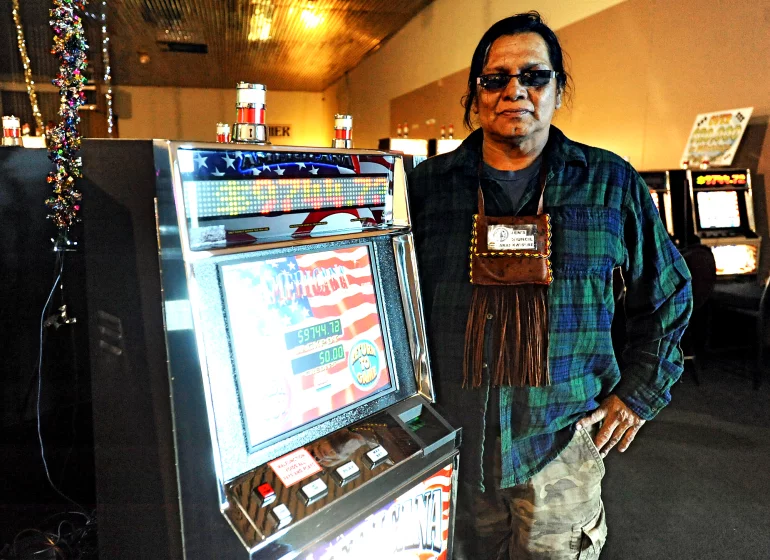
The Indian Gaming Regulatory Act, commonly known as IGRA, is a landmark federal law passed in the United States in 1988. This critical legislation reshaped the legal and economic framework for Native American tribes engaging in gaming activities. Prior to IGRA, the regulation of gaming on Indian lands was a complex and often contentious issue, with varying interpretations of tribal sovereignty and state jurisdiction.
IGRA was enacted to provide a clear statutory basis for tribal gaming, aiming to foster tribal economic development, promote tribal self-sufficiency, and strengthen tribal governments.
The Genesis of IGRA: Balancing Interests
Before IGRA, a series of court cases highlighted the need for a standardized approach to Indian gaming. The Supreme Court's 1987 decision in California v. Cabazon Band of Mission Indians affirmed tribal rights to conduct gaming if the state permitted such activities for any purpose. This ruling underscored the regulatory vacuum and prompted Congress to establish a comprehensive framework.
IGRA sought to balance the inherent sovereign rights of Indian tribes to regulate activities on their lands with the legitimate interests of states in regulating gambling and protecting public safety.
This balance is a cornerstone of the Act's provisions and continues to shape its application today.

Classes of Gaming Under IGRA
IGRA categorizes gaming activities into three distinct classes, each subject to different levels of tribal, state, and federal oversight. This classification system is central to understanding the regulatory requirements for various types of Indian gaming operations.
Class I Gaming: Traditional and Social Games
Class I gaming involves traditional Indian games played in connection with tribal ceremonies or social gaming for minimal prizes. These activities are entirely within the exclusive jurisdiction of the Indian tribes.
Federal law grants tribes the sole authority to regulate and manage Class I gaming, reflecting the cultural significance and limited economic impact of these activities.
Class II Gaming: Bingo and Non-Banked Card Games
Class II gaming primarily includes bingo, including electronic or technological aids used in connection with bingo. It also encompasses non-banked card games, such as poker, where players compete against each other rather than against the house.
This class of gaming is regulated by the tribes, but with oversight from the National Indian Gaming Commission (NIGC), a federal agency established by IGRA. Tribes wishing to conduct Class II gaming must adopt a tribal ordinance or resolution approved by the NIGC Chairman. States generally have a more limited role in Class II gaming, primarily ensuring that the type of gaming is not prohibited by state criminal law.
| Name | Return to player | Max payout | Variance | Soft | ||
| 99.07% | x1000 | Low |
|
Play | ||
| 99% | x12075 | High |
|
Play | ||
| 98.98% | x3843 | Middle |
|
Play | ||
| 98.72% | — | — |
|
Play | ||
| 98.67% | — | — |
|
Play | ||
| 98.6% | x670 | Low |
|
Play | ||
| 98.18% | — | Low |
|
Play | ||
| 98.13% | x15000 | High |
|
Play | ||
| 98.12% | x10000 | High |
|
Play | ||
| 98.12% | x500 | Low |
|
Play | ||
| 98.11% | x100 | Middle |
|
Play | ||
| 98.11% | x1500 | High |
|
Play | ||
| 98.11% | x7500 | — |
|
Play | ||
| 98.1% | x2500 | — |
|
Play | ||
| 98.1% | x2500 | — |
|
Play |
Class III Gaming: Casino-Style Operations
Class III gaming encompasses all other forms of gaming not covered by Class I or Class II. This typically includes the more extensive, high-stakes casino-style games like slot machines, blackjack, roulette, and other house-banked games. To operate Class III gaming, tribes must enter into a Tribal-State Compact with the state in which their Indian lands are located.
These compacts are crucial, as they outline the specific terms and conditions under which Class III gaming can be conducted, covering aspects such as regulatory jurisdiction, revenue sharing, and public safety measures. The compacts must be approved by the Secretary of the Interior, ensuring federal oversight and adherence to IGRA's objectives.
The Role of Tribal-State Compacts
Tribal-State Compacts are fundamental to the operation of Class III gaming. These legally binding agreements represent a negotiated compromise between tribal governments and state governments, defining the scope and nature of gaming activities on tribal lands. The negotiation process for compacts is often extensive, as it involves reconciling diverse interests related to economic impact, regulatory control, and public welfare.
Compacts may address issues like the types of games permitted, the number of gaming facilities, operational standards, environmental concerns, and the allocation of jurisdiction over criminal and civil matters. Once ratified by both the tribe and the state and approved by the federal government, these compacts provide the legal framework for tribal casinos.

Impact on Tribal Economies and Sovereignty
The implementation of IGRA has had a transformative effect on many Native American tribal economies. Gaming revenues have become a vital source of funding, allowing tribes to invest significantly in social programs, infrastructure, and diversification projects. This includes funding for education, healthcare, housing, and public safety services that might otherwise be underfunded.
The economic self-sufficiency fostered by gaming has also strengthened tribal sovereignty, providing tribes with greater control over their own affairs and reducing reliance on external governmental assistance. For many tribes, gaming has been instrumental in preserving cultural heritage and advancing self-determination.
Challenges and Future of Indian Gaming
Despite the considerable successes, the Indian gaming sector continues to face challenges.
Issues related to compact negotiations, particularly concerning revenue sharing and the expansion of gaming into new areas or off-reservation sites, remain subjects of ongoing debate and litigation.
Jurisdictional complexities between tribal, state, and federal authorities can also lead to disputes. Furthermore, the industry must constantly adapt to evolving market conditions, technological advancements in gambling, and changing public perceptions.
The future of Indian gaming will likely involve continued efforts to balance tribal economic development goals with regulatory integrity, ensuring sustainable growth and ongoing benefits for tribal communities.




























